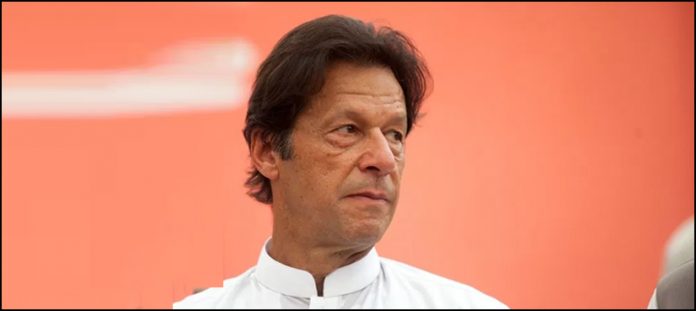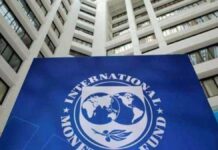
ISLAMABAD: Equity and bond markets have welcomed Imran Khan’s victory in Pakistan’s disputed election, but the former cricket hero faces a tough slog to avert a currency crisis and implement long-term reforms needed to end decades of boom-and-bust cycles.
Khan’s first major economic call will be to decide whether to ease pressure on the rupee by seeking Pakistan’s 12th bailout from the International Monetary Fund (IMF) since the late 1980s.
Harder still will be to persuade more people to pay taxes in a nation famous for tax dodging, turn off subsidy taps draining government coffers, and reform loss-making state-run enterprises that past governments have struggled to sell off.
“The country’s position is such that now you can no longer sustain the status quo,” said Suleman Maniya, head of research at local brokerage house Shajar Capital. “Speed is of the essence.”
Pakistan’s central bank has devalued the currency four times since December, weakening the rupee by more than 20 percent, amid efforts to avert a balance of payments crisis in the $305 billion (£232.5 billion) economy. A similar scenario in 2013 led to Pakistan obtaining a $6.7 billion loan from the IMF.
While the economy is growing at 5.8 percent, the fastest pace in 13 years, pressures on Pakistan’s current account show no signs abating.
The country’s central bank is concerned about rising global oil prices – Pakistan imports about 80 percent of oil needs – and dwindling foreign reserves, which plunged to just over $9 billion last week from $16.4 billion in May 2017.
Pakistan’s current account deficit widened 43 percent to $18 billion in the fiscal year that ended June 30, while the fiscal deficit has ballooned to 6.8 percent of the economy.
“Pakistan is facing the biggest economic challenge in the country’s history,” Khan said in his victory speech on Thursday, where he outlined a reform agenda.
“Our economy is going down because of our dysfunctional institutions. We need to fix our governance systems.”
If Khan does turn to the IMF, the Washington-based body will likely require spending cuts to reduce the fiscal deficit, which could imperil his populist promises to improve the lives of the poor by building world-class schools and hospitals.
On the campaign trail, Khan has zeroed in on Pakistan’s culture of tax evasion, which is prevalent across South Asia and means only about 1 percent of the population pays income tax.
Increasing that figure would be a major coup for the economy and Khan, who has vowed to reform the Federal Bureau of Revenue (FBR) in his first six months in office.
He has also promised to step up an anti-corruption drive, though this risks triggering capital flight in a country where vast wealth is undocumented, analysts say.
Another immediate focus will be on reforming state giants such as Pakistan International Airlines and various power utilities, which the previous government struggled to privatize.
Exotix Capital, a research house, said Pakistan’s long-term outlook hangs on whether Khan can improve governance and end the culture of the powerful avoiding taxes and sucking cash out of state-run enterprises, which adds to the fiscal burden.
“Otherwise, we are simply in for more the same (advice to investors): buy Pakistan as it heads to the IMF and sell before the IMF loan ends,” Exotix said in a research note.
STRUCTURAL CHANGES
Khan’s reform ambitions will be boosted by his strong relations with the powerful military and the judiciary’s favourable view of his anti-corruption stance, analysts say.
His better-than-expected performance at the polls also means he will be able to form a coalition with a handful of small parties unlikely to stand in the way of his reforms.
“Imran Khan is unlikely to be any investor’s top choice to run a country in such a precarious position, but any leader with the ability to form a government and take hard decisions is better than a protracted stalemate,” said Carmen Altenkirch, Emerging Markets Sovereign Analyst at Aviva Investors.
Pakistan’s benchmark stocks index has surged about 3.5 percent since it became clear on Thursday morning that Khan would win a strong mandate, while Pakistan’s sovereign dollar bonds have risen across the curve.
Khan’s economic agenda is likely to be entrusted to Asad Umar, the former chief executive of Engro, Pakistan’s biggest conglomerate, widely tipped to be chosen as finance minister.
Days before the vote, Umar told Reuters that a PTI government would not rule out asking China for a bailout instead of turning to the IMF, which he held partly “culpable” for the economic crisis because it allowed the last government to skip reforms.
“The real issue is that the competitiveness of Pakistan’s economy has eroded badly – crop after crop, industry after industry has become uncompetitive,” said Umar, blaming low productivity and skill levels of businesses, high input costs, lack of scale, and political intervention in some industries.
“Until you restore that core competitiveness, we will keep going through this.”





















